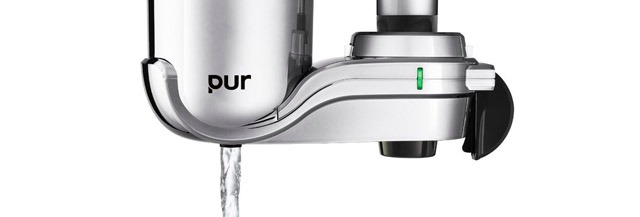There are lots of filter options when it comes to purifying your water. The most common are faucet filters and pitcher filters. Brita and PUR have created a whole industry around these types of filters and there are numerous other companies that have entered into the fray.
The question is, which type of filter is better and what are the various factors to consider? In this article we will look at overall effectiveness, convenience, durability and cost.
Which is more effective at purifying water?
Lots of people assume that a faucet filter must be better than a pitcher or dispenser, but the evidence is not always there to back them up. For example, there are some PUR pitcher filters that do a better job of purifying water than the PUR 2 Stage Faucet Mount. However, the PUR 3 Stage Faucet Mount tops them all. The answer to the above question: it depends. Faucet mounted filters certainly can be better, but make sure to do your research before hand. Tip: consult NSF to see where filters stand in terms of their effectiveness.
Convenience
Faucet filters have the edge in this one. For one, you don’t have to wait for anything to fill up before you use it – the water is purified as it comes out of the tap. Secondly, you can turn the filter on and off as needed. If you are washing your hands, switch the filter off. Drinking a glass of water? Turn it back on. Also, faucet filters don’t take up space in your refrigerator and they are not a burden in the sink area.
Durability
Both faucet and pitcher filters need semi-regular maintenance. The filters can only purify so much water before they need to be replaced. Filters generally last longer in the faucet variety, however, often by as much as a month. It must be said, though, that faucet filters can be prone to leaks. Before purchasing any product, make sure you read reviews from customers who’ve used it and see if there are any particular issues. You can read product reviews on sites like Amazon.com.
Cost
Again, it depends. It would seem that faucet filters should be much more expensive as they appear to be a more sophisticated piece of equipment, but that is not always the case. The PUR DS-1800Z that we mentioned earlier is actually more expensive than the 3 stage PUR faucet filter.
Ultimately, you will get what you pay for. It is not necessarily about whether it is one type of filter. Rather, it is about what make and model. If you can afford to seriously invest in your water quality, you should probably look to whole house filtration or reverse osmosis systems.
If you can’t afford that level of purification then you should look for the best faucet or pitcher filter you can buy. Consult customer reviews on Amazon and look to NSF for quality control. Don’t be of the mindset that one type of filter is inherently better than another – it all depends on how much money you can put in and the amount of research you conduct.







{ 2 comments… add one }